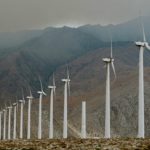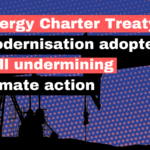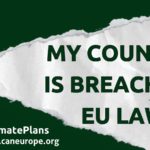EU Energy Ministers meeting in Luxembourg today have adopted their position on the revision of the Energy Efficiency Directive (EED) for after 2020. By agreeing to dilute its cornerstone measure: the annual energy savings obligation, they propose to significantly weaken the policy and thus also profoundly undermine the EU’s commitments under the Paris Agreement.
The Ministers propose to add new loopholes, further undermining the energy savings obligation which requires EU countries to save 1.5% of energy sold to consumers every year. These new loopholes would significantly reduce the impact of the savings obligations. The Ministers also refrained from specifying whether the EU 2030 energy efficiency target should be indicative or binding, which would further weaken the EU’s efforts to save energy.
Germany, France, Luxembourg, Ireland, Sweden and Denmark advocated for a binding 30% energy efficiency target and limiting the loopholes, acknowledging that energy efficiency is indispensable for achieving the Paris Agreement goals.
In reaction to the outcomes of the meeting, Wendel Trio, Director of Climate Action Network (CAN) Europe said:
“EU countries have failed the test to translate their commitment to the Paris Agreement into legislation. Today’s proposal to water down the energy savings obligation clashes with the Paris Agreement goals which require the EU to boost energy efficiency investments. The Parliament must strengthen the law when it decides on its position, in order to put Europe ahead of the game on energy efficiency.”
What is the EU energy savings obligation?
Thanks to the EED, currently EU countries have to save 1.5% of energy sold to consumers every year. They can achieve this by for example renovation of buildings or promotion of more efficient consumer goods. These measures bring significant benefits, not only in terms of lower carbon emissions, but also new investment opportunities, lower energy bills, better air quality or new jobs.
What is the Council’s position on the energy savings obligation for after 2020?
The Commission proposed to continue the savings obligation under the new EED for after 2020, published as part of its Clean Energy Package in November 2016. Unfortunately, the Commission did not propose to eliminate any of the loopholes allowed in the current legislation which all together reduce the savings to be achieved by Member States by around a half, from 1.5% per year to only 0.75%.
Instead of eliminating the existing loopholes, EU governments added more of them. According to the position adopted today, countries would for example be allowed to reduce the obligation from 1.5% to 1% after 2026. As a result of the different new loopholes, they would be required to deliver much less additional savings under this requirement after 2020.
What is the Council’s position on the EU 2030 energy efficiency target?
EU governments refrained from specifying whether the EU 2030 energy efficiency target should be indicative or binding (which the Commission has proposed), which would further dilute the EU’s energy savings law. A binding target of 30% is anyway too low to meet the Paris Agreement goals. The European Parliament has been calling for an increase to 40%.
What are the next steps in the negotiations?
The ball is now in the European Parliament’s court. An initial proposal for its position on the new Energy Efficiency Directive has been published earlier this month. The industry committee will vote on it in October.
ENDS
Contacts:
Wendel Trio, CAN Europe Director, wendel@caneurope.org, +32 473 170 887
Ania Drazkiewicz, CAN Europe Communications Coordinator, ania@caneurope.org, +32 494 525 738
Notes:
European Parliament resolution of 23 June 2016 on the implementation report on the Energy Efficiency Directive (2012/27/EU) (2015/2232(INI)), calling for a 40% 2030 energy efficiency target: http://www.europarl.europa.eu/oeil/popups/ficheprocedure.do?lang=en&reference=2015/2232(INI)
CAN Europe, Polish MEP misuses energy efficiency file to promote coal, https://caneurope.org/publications/press-releases/1422-polish-mep-misuses-energy-efficiency-file-to-promote-coal
Climate Action Network (CAN) Europe is Europe’s largest coalition working on climate and energy issues. With over 130 member organisations in more than 30 European countries – representing over 44 million citizens – CAN Europe works to prevent dangerous climate change and promote sustainable climate and energy policy in Europe.



